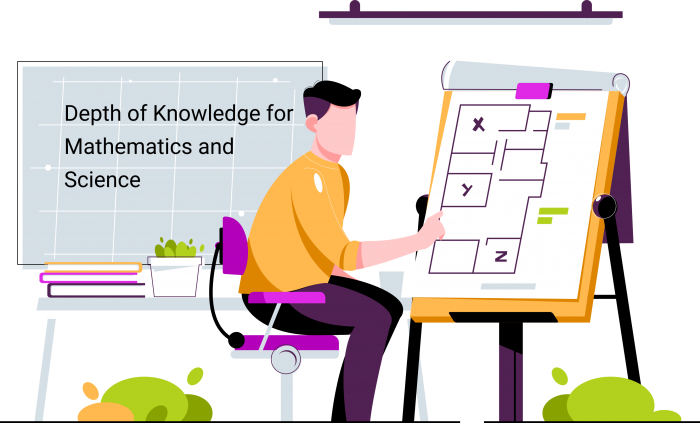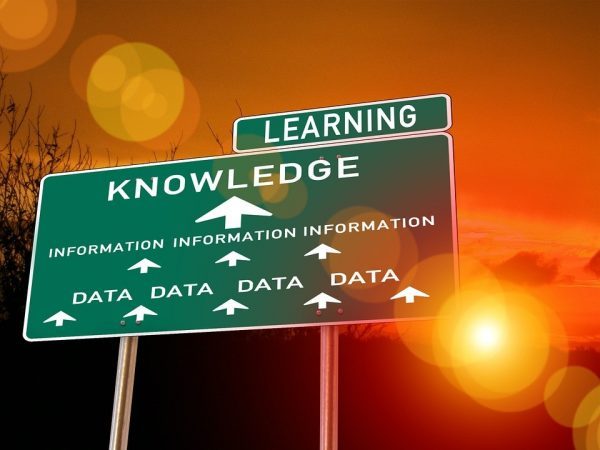The importance of depth of knowledge across subjects highlights recent research data on its impact and provides insights into fostering deeper understanding in educational settings.
In education, the depth of knowledge refers to the understanding and mastery students achieve in various subjects. It goes beyond superficial memorization and encourages learners to delve deeper into concepts, analyze information critically, and apply their knowledge in meaningful ways. This article explores the importance of depth of knowledge across subjects, highlights recent research data on its impact, and provides insights into fostering deeper understanding in educational settings.
The Importance of Depth of Knowledge:
Depth of knowledge is crucial for students to develop a strong foundation in any subject. It enables them to grasp complex ideas, make connections between concepts, and apply their learning to real-world scenarios. When students possess a deep understanding of a subject, they are better equipped to think critically, solve problems creatively, and engage in higher-order thinking skills.
Recent Research Data on Depth of Knowledge
Recent research studies have shed light on the significance of the depth of knowledge in various subjects. A study by the National Research Council (NRC) in the United States examined the impact of deep understanding in science education. The findings revealed that students who acquired a deeper understanding of scientific concepts performed better in problem-solving tasks and demonstrated superior analytical skills than those with shallow knowledge.
Another study published in the Journal of Educational Psychology explored the relationship between depth of knowledge and student achievement in mathematics. The research indicated that students who developed a deep understanding of mathematical concepts exhibited higher scores on assessments and increased confidence and motivation in the subject.

These research findings emphasize the importance of moving beyond surface-level learning and cultivating depth of knowledge in subjects across the curriculum.
Strategies for Fostering Depth of Knowledge
To foster depth of knowledge in students, educators can employ various strategies that promote critical thinking, analysis, and application of knowledge. Here are some practical approaches:
Inquiry-Based Learning:
Encouraging inquiry-based learning allows students to explore topics independently, ask questions, and investigate concepts deeply. This approach fosters curiosity, critical thinking, and problem-solving skills, enabling students to develop a deeper understanding of subjects.
Problem-Based Learning:
By presenting real-world problems or scenarios, educators can engage students in problem-based learning. This approach prompts students to analyze and apply their knowledge to develop solutions, fostering a deeper understanding of the subject.
Scaffolding:
Scaffolding involves providing structured support to students as they navigate complex concepts. Educators can gradually remove the scaffolds as students develop a deeper understanding, allowing them to take ownership of their learning.
Metacognition:
Promoting metacognitive skills like reflection and self-assessment helps students better understand their learning process. Encouraging students to think about their thinking enhances their ability to monitor their understanding, identify areas of improvement, and make connections between concepts.
Integrating Technology for Depth of Knowledge
In today’s digital age, technology can play a significant role in fostering depth of knowledge in subjects. Educational technology tools provide opportunities for interactive learning experiences and personalized instruction. Here are some ways technology can be integrated:
Simulations and Virtual Laboratories:
Virtual simulations and laboratories enable students to engage in hands-on, experiential learning. These tools allow students to explore and manipulate concepts in a safe and immersive environment, deepening their understanding of complex phenomena.

Online Resources and Multimedia:
Access to various online resources, including interactive websites, videos, and multimedia content, can enrich students’ learning experiences. These resources provide different perspectives, real-world examples, and engaging visual representations promoting knowledge depth.
Assessing Depth of Knowledge
Assessing the depth of knowledge is essential to gauge students’ understanding and identify areas of improvement. Traditional assessment forms, such as multiple-choice tests, may not effectively capture the depth of understanding. Educators can consider alternative assessment methods, such as:
Performance-Based Assessments:
Performance-based assessments, such as projects, presentations, and portfolios, allow students to showcase their deep understanding by applying their knowledge in authentic contexts. These assessments emphasize problem-solving, critical thinking, and creativity.
Rubrics and Criteria:
Using rubrics and clear assessment criteria gives students a transparent understanding of the depth of knowledge expected. Rubrics can assess not only the accuracy of responses but also the depth of understanding demonstrated by students.
Self-Assessment and Reflection:
Incorporating self-assessment and reflection exercises empowers students to assess their depth of knowledge and identify areas for improvement. Students can reflect on their learning process, identify strengths and weaknesses, and set goals to deepen their understanding further.
Conclusion:
The depth of knowledge is crucial in fostering meaningful learning experiences across subjects. Educators can unlock deeper understanding by moving beyond surface-level learning and encouraging students to engage in critical thinking, analysis, and application of knowledge. Recent research data highlights the positive impact of depth of knowledge on student achievement and developing essential skills. Educators can nurture a culture of depth of knowledge by implementing effective strategies, integrating technology thoughtfully, and utilizing alternative assessment methods, empowering students to become lifelong learners and critical thinkers in an ever-changing world.
In education, the depth of knowledge refers to the understanding and mastery students achieve in various subjects. It goes beyond superficial memorization and encourages learners to delve deeper into concepts, analyze information critically, and apply their knowledge in meaningful ways. This article explores the importance of depth of knowledge across subjects, highlights recent research data on its impact, and provides insights into fostering deeper understanding in educational settings.
The Importance of Depth of Knowledge:
Depth of knowledge is crucial for students to develop a strong foundation in any subject. It enables them to grasp complex ideas, make connections between concepts, and apply their learning to real-world scenarios. When students possess a deep understanding of a subject, they are better equipped to think critically, solve problems creatively, and engage in higher-order thinking skills.
Recent Research Data on Depth of Knowledge
Recent research studies have shed light on the significance of the depth of knowledge in various subjects. A study by the National Research Council (NRC) in the United States examined the impact of deep understanding in science education. The findings revealed that students who acquired a deeper understanding of scientific concepts performed better in problem-solving tasks and demonstrated superior analytical skills than those with shallow knowledge.
Another study published in the Journal of Educational Psychology explored the relationship between depth of knowledge and student achievement in mathematics. The research indicated that students who developed a deep understanding of mathematical concepts exhibited higher scores on assessments and increased confidence and motivation in the subject.

These research findings emphasize the importance of moving beyond surface-level learning and cultivating depth of knowledge in subjects across the curriculum.
Strategies for Fostering Depth of Knowledge
To foster depth of knowledge in students, educators can employ various strategies that promote critical thinking, analysis, and application of knowledge. Here are some practical approaches:
Inquiry-Based Learning:
Encouraging inquiry-based learning allows students to explore topics independently, ask questions, and investigate concepts deeply. This approach fosters curiosity, critical thinking, and problem-solving skills, enabling students to develop a deeper understanding of subjects.
Problem-Based Learning:
By presenting real-world problems or scenarios, educators can engage students in problem-based learning. This approach prompts students to analyze and apply their knowledge to develop solutions, fostering a deeper understanding of the subject.
Scaffolding:
Scaffolding involves providing structured support to students as they navigate complex concepts. Educators can gradually remove the scaffolds as students develop a deeper understanding, allowing them to take ownership of their learning.
Metacognition:
Promoting metacognitive skills like reflection and self-assessment helps students better understand their learning process. Encouraging students to think about their thinking enhances their ability to monitor their understanding, identify areas of improvement, and make connections between concepts.
Integrating Technology for Depth of Knowledge
In today’s digital age, technology can play a significant role in fostering depth of knowledge in subjects. Educational technology tools provide opportunities for interactive learning experiences and personalized instruction. Here are some ways technology can be integrated:
Simulations and Virtual Laboratories:
Virtual simulations and laboratories enable students to engage in hands-on, experiential learning. These tools allow students to explore and manipulate concepts in a safe and immersive environment, deepening their understanding of complex phenomena.

Online Resources and Multimedia:
Access to various online resources, including interactive websites, videos, and multimedia content, can enrich students’ learning experiences. These resources provide different perspectives, real-world examples, and engaging visual representations promoting knowledge depth.
Assessing Depth of Knowledge
Assessing the depth of knowledge is essential to gauge students’ understanding and identify areas of improvement. Traditional assessment forms, such as multiple-choice tests, may not effectively capture the depth of understanding. Educators can consider alternative assessment methods, such as:
Performance-Based Assessments:
Performance-based assessments, such as projects, presentations, and portfolios, allow students to showcase their deep understanding by applying their knowledge in authentic contexts. These assessments emphasize problem-solving, critical thinking, and creativity.
Rubrics and Criteria:
Using rubrics and clear assessment criteria gives students a transparent understanding of the depth of knowledge expected. Rubrics can assess not only the accuracy of responses but also the depth of understanding demonstrated by students.
Self-Assessment and Reflection:
Incorporating self-assessment and reflection exercises empowers students to assess their depth of knowledge and identify areas for improvement. Students can reflect on their learning process, identify strengths and weaknesses, and set goals to deepen their understanding further.
Conclusion:
The depth of knowledge is crucial in fostering meaningful learning experiences across subjects. Educators can unlock deeper understanding by moving beyond surface-level learning and encouraging students to engage in critical thinking, analysis, and application of knowledge. Recent research data highlights the positive impact of depth of knowledge on student achievement and developing essential skills. Educators can nurture a culture of depth of knowledge by implementing effective strategies, integrating technology thoughtfully, and utilizing alternative assessment methods, empowering students to become lifelong learners and critical thinkers in an ever-changing world.
You must be logged in to post a comment.
- Most Recent
- Most Relevant






